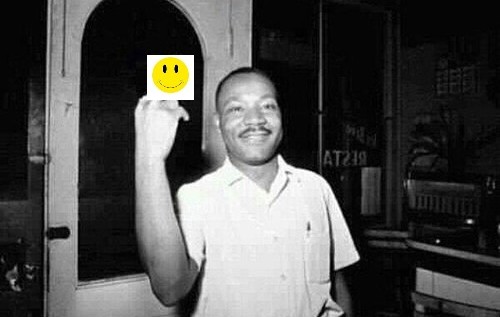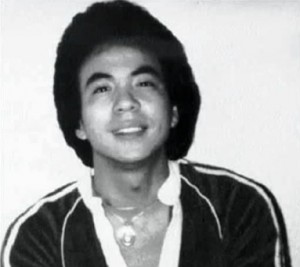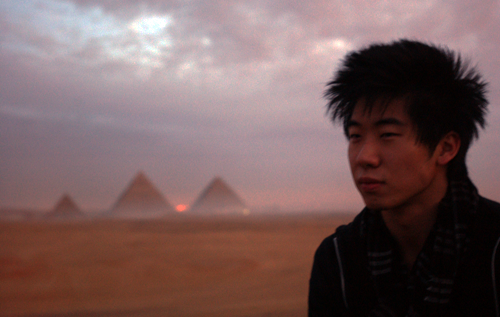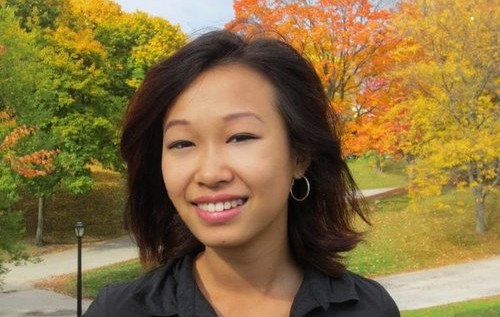The “Right” Kind of Radical

Something I’ve heard a lot in the Asian American community when it comes to discussing methodology and strategy is the black/white rhetoric of using Dr. Martin Luther King Jr. and Malcolm X as the be-all-end-all examples. I’ve lost count of how many times people have compared anyone even remotely more “radical” than themselves to Malcolm X. This is dangerous rhetoric because it not only paints Malcolm X as some dangerous idealistic criminal, it also erases the more moderate and radical beliefs for Malcolm X and MLK Jr. respectively. It creates an us-or-them mentality where people who are interested in social justice or Asian American social justice in particular can be alienated because they’re too radical for some circles and too moderate for others.
Quick history lesson: Martin Luther King was a radical. He was an anti-capitalist labor organizer and racial justice activist. People throw around his quote that only love can conquer hate, hate cannot conquer hate. And yet, MLK often included direct actions and civil disobediences in his organizing and encouraged others to do the same. He grew increasingly radical as he saw the consequences of capitalism, imperialism, and a slow moving civil rights movement. In 1968, he said, “For years I labored with the idea of reforming the existing institutions of society, a little change here, a little change there. Now I feel quite differently. I think you’ve got to have a reconstruction of the entire society, a revolution of values.” In his 1963 “Letter from a Birmingham Jail,” MLK says:
“I had hoped that the white moderate would see this need. Perhaps I was too optimistic; perhaps I expected too much. I suppose I should have realized that few members of the oppressor race can understand the deep groans and passionate yearnings of the oppressed race, and still fewer have the vision to see that injustice must be rooted out by strong, persistent and determined action.”
Malcolm X?
Contrast to Martin Luther King’s progressing radicalism, Malcolm X’s views changed drastically after leaving the Nation of Islam. He advocated for more international human rights justice rather than a black/white segregation issue. Towards the end of his life, Malcolm also reconsidered his lifelong argument that Black Nationalism means completely segregating from white America. Here is a quote from a letter he wrote in 1965:
“Brother, remember the time that white college girl came into the restaurant—the one who wanted to help the Black Muslims and the whites get together—and I told her there wasn’t a ghost of a chance and she went away crying? Well, I’ve lived to regret that incident. In many parts of the African continent I saw white students helping black people. Something like this kills a lot of argument. I did many things as a Black Muslim that I’m sorry for now. I was a zombie then—like all Black Muslims—I was hypnotized, pointed in a certain direction and told to march.”
Others use Mahatma Gandhi as an example. I swear, people are desperate for any kind of social justice icon who preached reformatory tactics. They’ll accuse people of being too angry and unable to communicate because they’re “too radical.” And yet Asian America works in the racial justice sector – a community that isn’t exactly devoid of radical activists. Why do we all do the work that we do? Because we’re angry with the state of society. We’re angry about discrimination and hate crimes and microaggressions. A good friend of mine once told me that they don’t associate with people who are embarrassed of their anger. The more I think about it, the more I agree.
Many people use MLK as a poster child of a “good black man” and demonize not only Malcolm X’s teachings, but also radicalism as well. This divides communities into those who are “too passionate, too radical, too extreme” and everyone else. I’ve discussed what the word “radical” means with several leaders of prominent Asian American organizations and each time I hear it defined differently. I’ve heard it exalted as an ideal to live up to, but I’ve also been told that it’s a negative word and that we as Asian Americans should strive to find a more appealing word. Excuse my language, but cut it out with the fucking semantics! Just because you call it a different word doesn’t change someone’s ideals or actions.
Something else I’ve heard is that I’m “too radical” to be a part of an organization. But then I read books by Helen Zia, I read some Frank Wu, I read some Grace Lee Boggs. All three are extremely respected figures in Asian America who colleges pay thousands of dollars to invite to speak. You know why I love reading their texts? Because I feel a kindred connection to them. I look at their words and it feeds the flame in me that wants to fight oppression. So my question is: what is the “right” kind of radical? Is there some kind of magical X Factor that makes a person somehow just a little bit more acceptable? How do you even measure radicalness anyway?
My personal opinion is that everyone’s radical. We’re radical for imagining a more equal and just world than the one that we currently live in. We’re radical for using the term Asian American. We’re radical for attending conferences and designing workshops and reading books and listening to music. We’re radical by having immigrant parents and grandparents. We’re radical by using names that people butcher and mispronounce but still hold up in pride. We’re radical for eating our food!
We’re radical simply by existing. There is no good or bad radical, so if you think I’m “too radical” for your group, I want no part of your “activism.”





